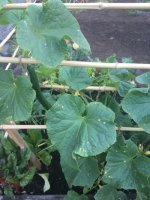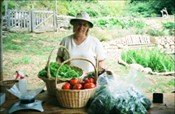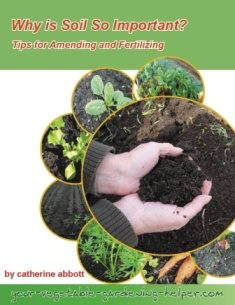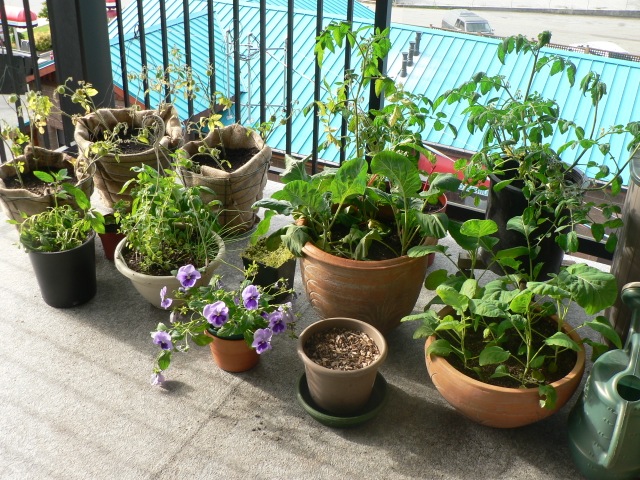Spring vegetable gardening: A Comprehensive Guide
Spring vegetable gardening brings unpredictable weather and is often the busiest season for a gardener. Spring is the ideal time to start a vegetable garden, providing fresh, home-grown produce through the year. This guide will help you plan, plant and maintain a thriving spring vegetable garden.
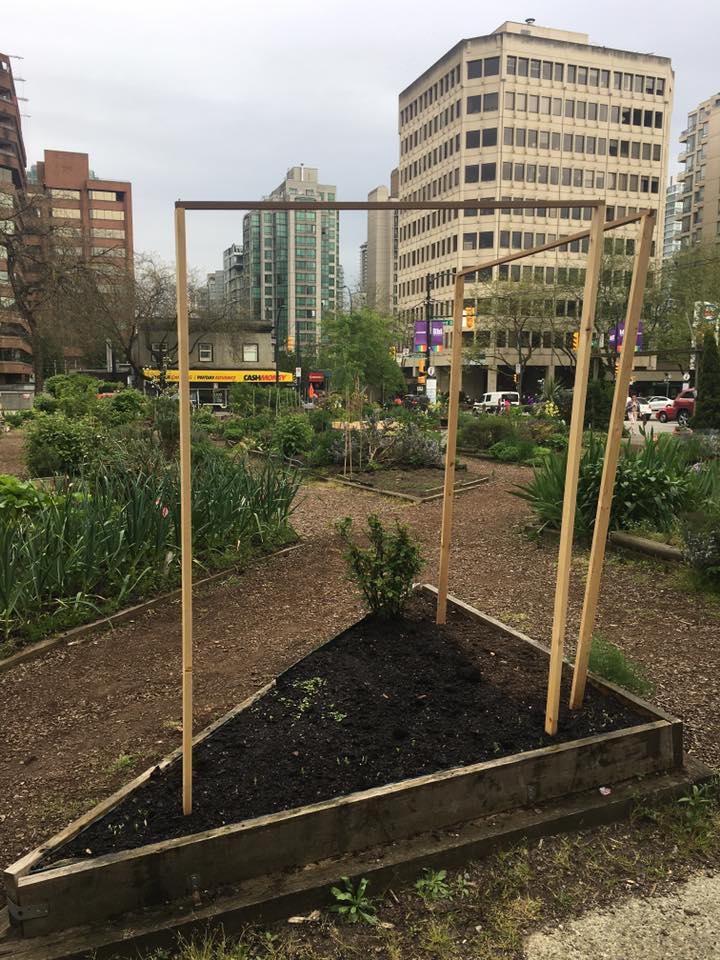 Getting my community garden bed ready.
Getting my community garden bed ready.This is the time to prepare your garden soil, finalizing your garden layout, get your seedlings started and start direct seeding and transplanting your vegetables. It is important to start small especially if you are a first time gardener. Starting small will help in not feeling overwhelmed before you even start. Check out my 6 steps to a garden for some background information to get you started.
Choose vegetables that thrive in cooler temperatures and can be harvested before the heat of the summer. Some popular spring vegetables are:
- Leafy Greens: Lettuce, spinach, kale and Swiss chard
- Root Vegetables: Radishes, carrots, beets and turnip
- Legumes: Peas and fava beans
- Brassicas: Broccoli, cauliflower, cabbage, Brussels sprouts
- Onions and Garlic: Plant sets or seeds for green onions, bulb onions and garlic
Planting your garden can involve sowing seeds indoors, transplanting seedlings or direct sowing. Each has it's benefits for creating a happy garden.
Spring Vegetable Gardening for March, April and May
March:
- Soil building is important this month. Spring is the time to turn over your soil. It is important not to till your soil until it is dry enough. If there is water standing in your garden or if you can form a ball of soil in your hand and it does not easily break apart it is still too wet. Once your soil easily crumbles when you form a ball it is ready to till. Turn over any green manure you planted last fall. Add in soil amendments such as compost, seaweed, shredded leaves, and well composted animal manures to your beds. Adding a few inches of each will add organic matter and nutrients to your soil; however if you only have one or two of the items, use what you have. Try to stock pile the others for next spring. It is best to try to keep them covered and reasonably dry.
- Weeds are starting to grow. As the weather turns warm the weeds start to grow so it is important to get a head start in controlling them. Doing it now will make it easier in a few months time. It is easier to hoe annual weeds when they are small and the soil is moist. Pick them up so they do not reseed themselves. Perennial weeds are best pulled while small and before their roots have a chance to grow deeper. Hand weed these trying to get as much of the root as possible. Learn more about weed control .
- Sow indoors. Now is the time to start broccoli, cabbage, lettuce, celery, onions and tomatoes indoors. Tips on how to care for your seedlings .
- Sow outdoors. Direct seed peas, beets, radish and spinach outside. Plant potato tubers. If you have a cold frame sow lettuce and salad greens in it.
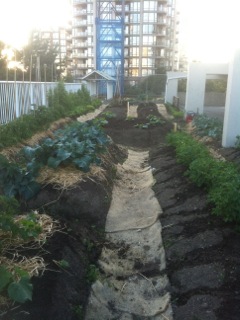 Spring Vegetable Gardening
Spring Vegetable GardeningApril:
- Make compost or manure tea. Now is the time to make teas to fertilize vegetables planted in March. Your lettuce and cabbage plants will especially like this now, giving them the boost they need to mature quickly. Learn how to make fertilizing teas.
- Get into a regular watering schedule. It is important to keep young seedlings and transplants moist. Now is the time to get your irrigation equipment into your garden. Tips for watering your garden .
- Mulch your beds. Mulching helps to keep weeds from growing, it keeps moisture in the soil as well as the warmth especially since the nights can still be cool. Check out which mulches are best for your garden site.
- Check your garden for pests and insects. If you live in a wet climate now is the time slugs start moving around. Check out my slug control tips. Cutworms and maggots are out at this time of year as well. They chew young seedlings off at the soil line. Check out my pest control tips.
May:
- Sow outdoors. Plant carrots, beets and lettuce again for harvesting in early summer. Once your soil warms up direct seed corn and bush beans. The soil is usually ready after a good week of sunny warm weather. Transplant out tomatoes, peppers, eggplant, cucumbers and squash when the weather is warmer, usually mid to late May. Stake your tomatoes.
- Keep your beds free of weeds. Keep your garden beds free of weeds so the young seedlings and transplants are not competing for nutrients.
- Hill your potatoes. Using a hoe bring soil up covering most of the new growth, this gives the tubers extra protection from light so they do not turn green.
- Harvest. Keep harvesting and enjoying your spring vegetable garden of fresh peas, lettuce, spinach, early beets, baby carrots and radishes. Once you harvest it is important to fertilize and then sow the garden beds again so you can harvest more vegetables in the summer and fall.
Conclusion:
Starting a spring vegetable garden is a rewarding endeavour that provides fresh, nutritious produce and a sense of accomplishment. With careful planning, soil preparation, and diligent mainteanance you can enjoy a bountiful harvest throughout the season.
I always keep a journal of what I do in my garden, where and when I plant my vegetables. This is a valuable tool for referencing from each season or when planning the next one. Happy Gardening!
Check out our new article - Spring Gardening Tips for Small Spaces
Return from Spring Vegetable Gardening to homepage
Recent Articles
-
Vegetable Gardening Frustrations: Lessons for a Better Harvest
Oct 29, 24 07:37 PM
Every vegetable gardener knows that while the rewards are sweet, the vegetable gardening frustrations can be a bit bitter. -
Small Space Vegetable Gardening
Sep 23, 24 05:06 PM
Small Space Vegetable Gardening - Tips for growing vegetables in small spaces. -
Why Fall Gardening?
Aug 16, 24 12:24 PM
Fall Gardening: A guide to a Bountiful Harvest.
